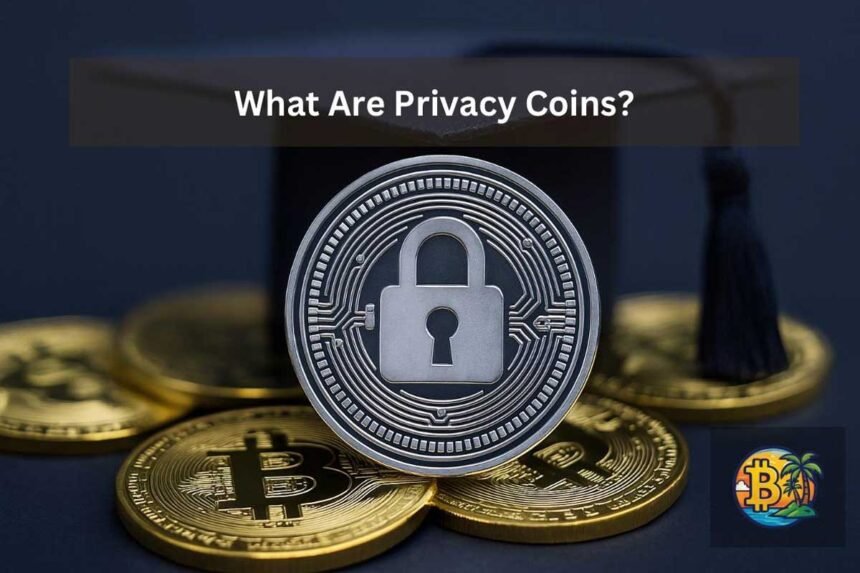Key Insights
- Crypto is one of the most private ways to send money on the planet. It offers a semi-anonymous way to trade and transfer value from person to person.
- Privacy coins are a special category of crypto, designed to keep transactions hidden.
- They completely hide the identities of parties involved in transactions unlike regular cryptos like Bitcoin.
- Privacy coins aren’t just for people with something to hide. There are many good reasons why someone might choose to keep their activity private.
- As the crypto space matures, we can expect more innovation and better tools to help the debate about privacy in finance.
Crypto is one of the most private ways to send money on the planet. It offers a semi-anonymous way to trade and transfer value from person to person.
However, despite this arrangement, the privacy that crypto offers is sometimes not enough.
Blockchain technology records all transactions on a publicly available ledger. This means that transfers can still be traced, and individuals can still be connected to their wallet addresses.
This is where privacy coins come in.
Privacy coins are a special category of crypto, designed to keep your transactions hidden.
They offer users the ability to send/receive funds without leaving a traceable trail. But how do they work, and why are they so useful?

The Need for Privacy in Crypto
When Bitcoin was first introduced, many people believed it to be untraceable.
However, over time, it became clear that blockchain analytics firms could link wallet addresses to real people and thus trace transactions if they wanted to.
This raised some issues for users who wanted financial privacy.
Privacy coins are a direct solution to this issue, and provide numerous services to users.
They completely hide the identities of parties involved in transactions unlike regular cryptos like Bitcoin.
As a result, are used for several use cases including protecting sensitive business payments, guarding personal purchases, or simply enjoying that extra layer of anonymity.
How Privacy Coins Work
Privacy coins use advanced cryptography to hide transaction data that regular crypto networks would normally expose.
While each privacy coin uses a different method to achieve this function, most are focused on hiding the Sender’s or Recipient’s address, as well as the transaction amount
So how do they do this?
1. Ring Signatures
Networks like Monero use ring signatures to mix a user’s transaction with several others.
This makes it extremely hard to tell who actually sent the funds, and to whom they were sent. It’s like putting your letter in a pile of identical envelopes, where no one can tell which one is actually yours.
2. Stealth Addresses
Stealth addresses generate one-time wallet addresses for every transaction. This means that even if someone knows your public address, they won’t be able to link you to your transactions.
3. Zero-Knowledge Proofs (zk-SNARKs)
This technology is fairly popular, and is favored by networks like Zcash. It allows transactions to be verified, without revealing any data about the transaction itself. You prove that a transaction is valid without disclosing the sender, receiver or amount.
Some Popular Privacy Coins
Several privacy-focused coins have become very popular over the years, in the crypto market.
Monero (XMR)
Monero is arguably the most popular privacy coin. As mentioned earlier, it uses ring signatures, stealth addresses and confidential transactions to offer its users complete anonymity.
As such, every Monero transaction is private by default.
Monero works so well that it has even become a favorite among cybercriminals, alongside other users like privacy advocates, cybersecurity experts and end users.
Zcash (ZEC)
Zcash offers optional privacy, where users can choose between transparent and shielded transactions.
When privacy is enabled, Zcash uses zero-knowledge proofs to hide transaction data.
This flexibility has made the network attractive to users who want the option to remain private without having to sacrifice usability.
Dash (DASH)
Dash was originally known as Darkcoin, and started as a privacy coin. However, it has shifted focus over the years by offering a feature called PrivateSend.
PrivateSend lets users mix their coins with others to hide transactions.
Though Dash is no longer considered as private as Monero or Zcash, it is still popular among users who want some degree of anonymity.
Why People Use Privacy Coins
Privacy coins aren’t just for people with something to hide. There are many good reasons why someone might choose to keep their activity private.
Some of these include protection from surveillance, especially in countries where financial freedom is tightly restricted.
Companies may also not want competitors to see their supplier or customer payments, and the same goes for high-net-worth individuals who want to avoid becoming targets for scams or extortion.
The Controversy Around Privacy Coins
As expected, privacy coins have attracted regulatory backlash from governments and regulators.
Since their transactions are hard to trace, they’ve been linked to everything from money laundering to drug trafficking and ransomware.
As a result, some crypto exchanges have delisted them completely, due to compliance issues.
Entire countries like Japan and South Korea, for instance, have placed restrictions on these coins.
However, things are not all black and white. Advocates argue that privacy is a human right and that banning privacy coins is like banning cash.
This debate has raged on for years, and is unlikely to go away soon.
Users should know that the legality of privacy coins varies by country.
In most regions, owning or using them isn’t illegal, however, regulations are tightening and Governments want to ensure that crypto activity doesn’t bypass anti-money laundering (AML) laws.
Some exchanges tend to demand additional verification before allowing the trade of privacy coins.
Others have chosen to avoid them altogether to stay on the safe side.
As a result, before buying or using privacy coins, it is important to check local laws and exchange policies.
As the crypto space matures, we can expect more innovation and better tools to help the debate about privacy in finance.






